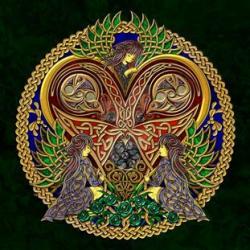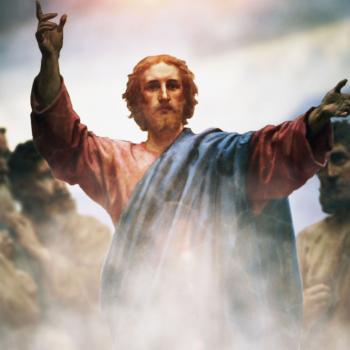 In Gaelic culture, marking the changing of seasons was particularly important. One of the things that signaled the end of a season was the reaping of crops. The day that a community began to reap was a day found to be full of ceremony. Reaping was seen as life changing and life giving. Reaping meant that there would be food in the hard cold months to come. Reaping was not only life changing but lifesaving. It would be difficult to find a action more worthy of blessing than the sustainment of life.
In Gaelic culture, marking the changing of seasons was particularly important. One of the things that signaled the end of a season was the reaping of crops. The day that a community began to reap was a day found to be full of ceremony. Reaping was seen as life changing and life giving. Reaping meant that there would be food in the hard cold months to come. Reaping was not only life changing but lifesaving. It would be difficult to find a action more worthy of blessing than the sustainment of life.
The ceremony of this blessing before the harvest involved the father of each family putting his bonnet on the ground, then he would take up his sickle, and facing the sun he cut a handful of corn. He would then take the corn and put the corn three times sunwise around his head. While doing this the entire family would repeat the “Lolach Buana” or reaping salutation. The entire family would then praise God. God was praised as the God of the harvest, who was the great provider for the people.
The Reaping Blessing
God, bless thou Thyself my reaping,
Each ridge and plain and field.
Each sickle curved, shapely hard,
Each ear and handful in the sheaf.
Bless each maiden and youth,
Each woman and tender youngling.
Safeguard them beneath Thy shield of strength,
And guard them in the house of saints.
Encompass each goat, sheep, and lamb,
Each cow and horse and store.
Surround Thou the rocks and herds,
And tend them to a kindly fold.
For the sake of Michael the head of hosts,
Of Mary fair-skinned branch of grace.
Of Bride smooth-white of ringleted locks,
Of Columba of the graves and tombs.
When the act of reaping was completed, the people held a sort of trial called the “casting of the sickles” and the “trial of hooks”. In this action, the sickle was tossed high into the air and observing how they fell and its position when it came to rest on the ground. To the observer, Carmichael, it appeared how they fell gave insight into who would remain single and who would get married as well as who would get sick and die before the next reaping.
Prayer as a Necessary Part of the Rhythm of Life
This prayer shows us not only how much prayer was an intricate part of the lives of Gaelic peoples, but the importance of its intention. I cannot help but notice how this blessing does not ask for more than is needed. The Celtic peoples appear to have always been happy with life sustaining blessing rather than wealth.
In the United States, our concept of blessing has become so intertwined with wealth that we have forgotten the purpose of blessing. When we give or receive a blessing, the purpose is to ask God to provide sustenance of whatever the topic is. Blessings are not for the purpose of acquiring wealth and power, especially at the cost of others. We have capitalized blessings and monetized prayer. The Celts understood that worldly power and wealth were not markers of holiness or favor. They saw power and wealth as indicators of the exact opposite. You see, it was the powerful and wealthy who typically caused many of the hardships these people had historically confronted.
Back to the Heart of Blessing and Prayer
It is time we got back to the basics of prayer and blessing. We should seek to ask of God for what sustains us spiritually and physically. Things that would come between you and God like unbridled power or wealth are not things God would “give” you. The Celts understood blessings came from a place of simplicity. Blessings were hopeful and thankful that God would and still provide what was needed. If our prayers focused on need instead of desire, imagine how much closer we would draw to God. Imagine how meaningful our prayers and blessings would become. Imagine the change we could effect in the world if we focused on the needs of people being met instead of desire















